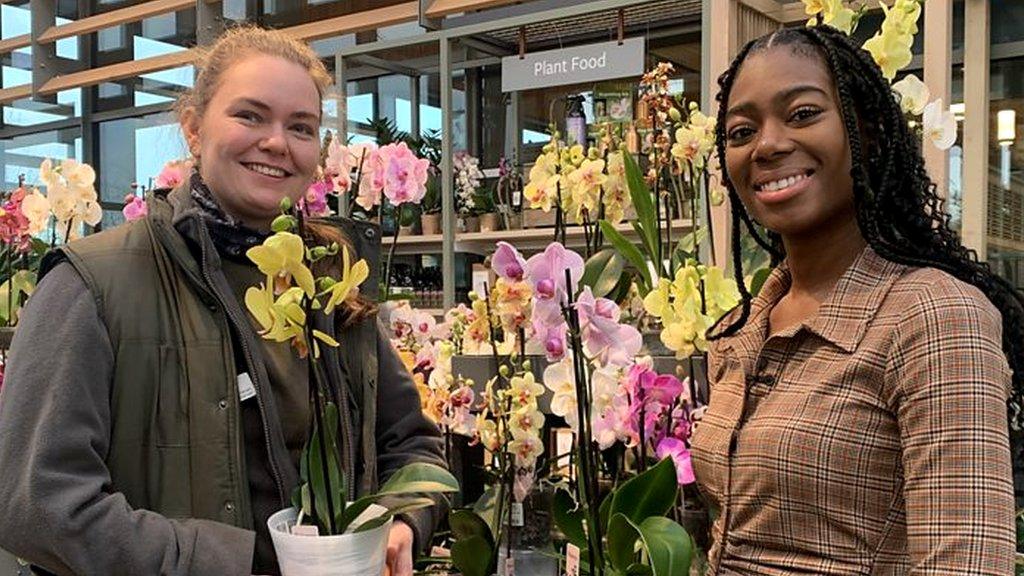Chelsea Flower Show: Fake plastic grass banned from famous event
- Published
- comments
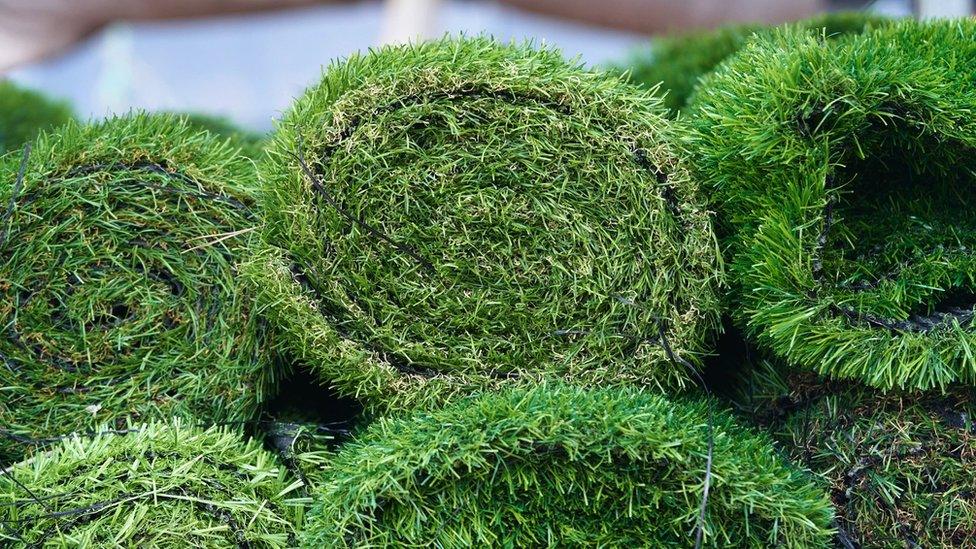
Fake grass made from plastic rolled up
Fake plastic grass has been banned from this year's Royal Horticultural Society (RHS) events, including the famous Chelsea Flower Show.
The RHS, the UK's leading gardening charity, said no fake grass would be allowed because of its damaging effect on the environment.
Mark Gush, Head of Horticultural and Environmental Science for the RHS, told Newsround: "Climate change is caused by too many greenhouse gasses in the air (such as carbon dioxide), and plastic grass contributes to this,
"Fossil fuels are used to make it, and it is also hard to get rid of - the fake grass usually has to go in the bin when it is worn out, and ends up in landfill."
WATCH: Six tips to help wildlife in your garden (June 2021)
The use of fake grass, also known as artificial grass, in home gardens has grown in popularity over the years.
Sales of it boomed in 2020 during lockdown as it was seen to be easier to manage and look after than fresh lawn.
But conservationists say real grass is much better for the environment.
"Real grass lawns give lots of benefits for the environment, including absorbing carbon dioxide, producing oxygen, cooling the air, and creating a home for wildlife - especially insects," Mr Gush told Newsround.
We encourage everyone to use real grass and flowers in their gardens for the many benefits and enjoyment they provide us and the natural world.
Plastic grass 'harmful to health of animals and people'
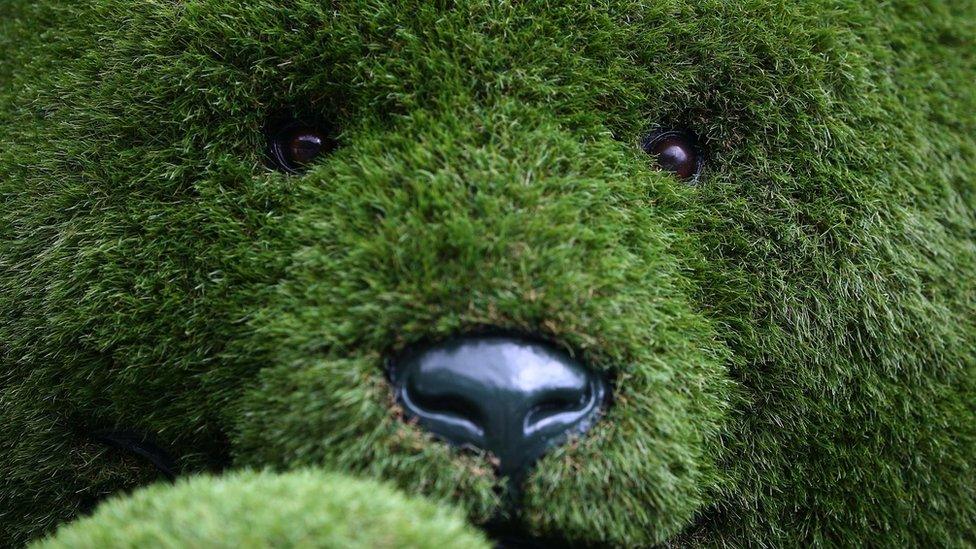
An artificial grass teddy bear displayed at the RHS Chelsea Flower Show in 2017
Mr Gush added: "Plastic grass can't do any of this, and creates a sterile, lifeless area in the garden. Even worse, plastic grass can become extremely hot and it can contaminate the soil below it, which has been shown to harm earthworms.
"Plastic grass can make flooding worse and sheds tiny plastic pieces, known as microfibres, into the environment which are harmful to the health of animals and people."
A petition last year calling for a ban on selling artificial grass gathered more than 32,000 signatures, but the government said it had no plans to bring one in.
"We prefer to help people and companies make the right choice, rather than banning items outright," said a spokesperson for the Department for Environment, Food and Rural Affairs (Defra).
- Published24 March 2022
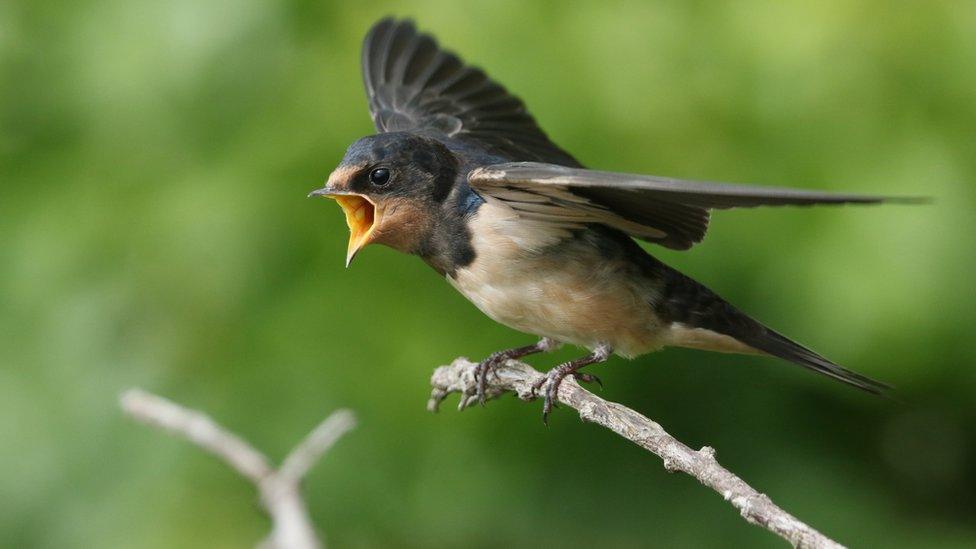
- Published7 March 2022
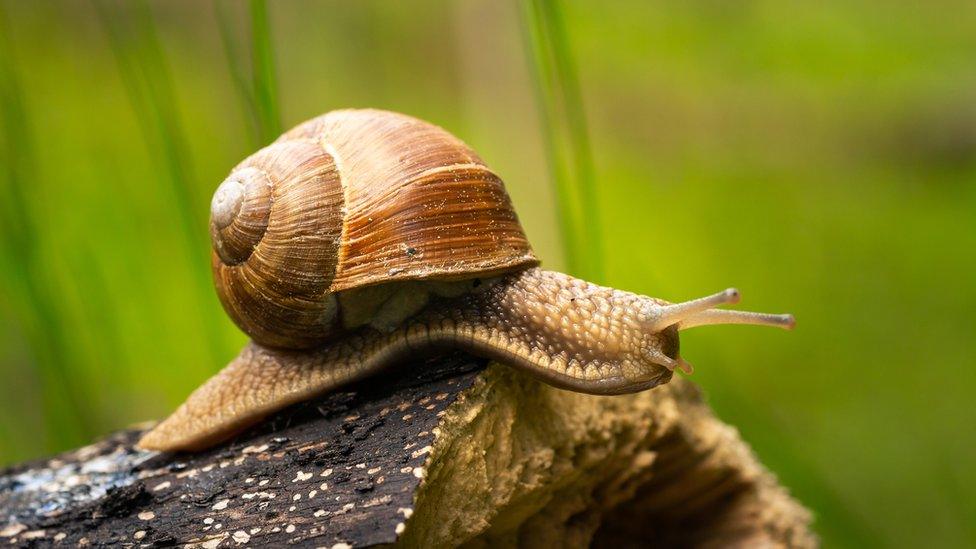
- Published14 January 2022
